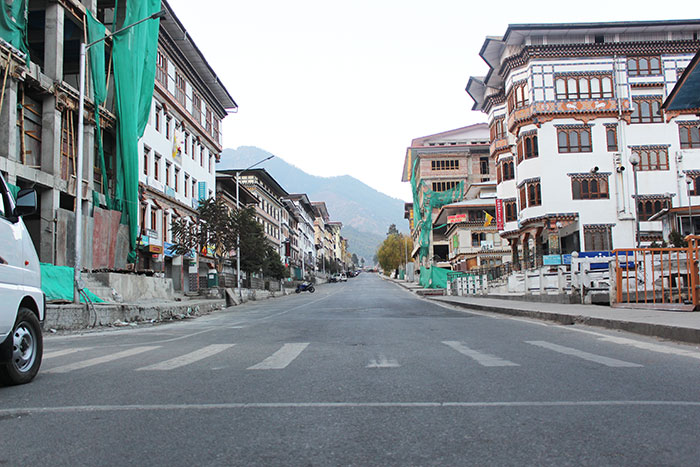Younten Tshedup
On December 20 last year, Prime Minister Dr Lotay Tshering told the public to stay home, again.
It started with locking down the capital city, home to about 150,000 people.
In the early hours on August 11, the nation experienced its first ever lockdown due to the Covid-19 pandemic. This time again, a 25-year-old woman had tested positive for Covid-19 outside the quarantine facility on December 19, triggering the second nationwide lockdown four days later.
Twenty people tested positive for the virus 24 hours later, including two from Punakha. Selective clusters in Thimphu and Punakha were declared red zones and mass testing began across the country.
Soon authorities confirmed local transmission in multiple dzongkhags. Thimphu, Paro, Dagana (Lhamoidzingkha), Bumthang, Haa, Punakha, Wangdue, and Trongsa reported positive cases during the initial days of the outbreak.
The outbreak, which is now linked to the point of entry in Paro (international airport), has so far infected 392 Bhutanese and two expats since December 20. This is excluding the 21 cases detected from the quarantine centres during the same period.
Health experts said that the outbreak this time was 10 times bigger than the one in August. During the initial days of the outbreak, the daily case detection rate was around 14. The highest positive case in a day was recorded on January 9, with Thimphu alone detecting 38 of the 39 positive cases.
Thimphu and Paro remained as high-risk areas given the detection of positive cases almost on a daily basis until the third week of January. However, most of the positive cases were limited to the close contacts of those who had tested positive earlier. More than 80 percent of the cases detected so far were among the close contacts.
Impact and death
Unlike the last outbreak, the dreaded nightmare as a result of the pandemic came true this time. On January 7, Bhutan recorded the first Covid-19 death.
A 34-year-old man with pre-existing medical condition became the country’s first victim of the Covid-19 pandemic.
There were three more casualties in December. However, health officials said that the three individuals succumbed to terminal illness after they had recovered from Covid-19. A 50-year-old woman with auto-immune disease, a 30-year-old woman with compromised lungs, and an 83-year-old man with heart problem died after they tested negative for the virus.
Also, given the rate at which the infection was spreading in the country, health experts believed that a more infectious strain of SARS-CoV-2, the virus that causes Covid-19, could be behind the outbreak this time.
People from all age groups — young, old, infants — contracted the infection this time. A 2.5-month-old infant was the youngest to be infected; the oldest was an 83-year-old.
Breach, inconveniences and other challenges
While the government managed to streamline many of its activities this lockdown drawing experience from the first, challenges persisted with the lockdown 2.0 extending over 40 days in the capital.
Breaching the lockdown protocol and endangering the lives of others spurred debate on the laws and its implementation.
The vaccine plan
The country received its first consignment of the Oxford-AstraZeneca vaccine from India on January 20. The 150,000 doses of vaccine was a ‘gift’ from India to Bhutan.
The government has planned a nationwide mass vaccination campaign as soon as it receives the targeted 533,000 doses for all the eligible population in the country. The mass vaccination campaign is expected to begin by next month considering the dana (inauspicious month). The government also expects to receive the remaining doses by then.
In the meantime, the government has announced that it would also begin vaccinating the referral patients, including Bhutanese travelling abroad.
However, experts have said that even after the vaccine is administered to the mass, the risk of Covid-19 outbreak will remain unless the global pandemic status is downgraded.
Experts recommend following the proven health measures such as wearing facemasks, practising physical distancing, and regularly washing hands with soap.
Complete unlocking of the country began yesterday. This, however, may not be the final lockdown. If people are not careful, there could be more.


